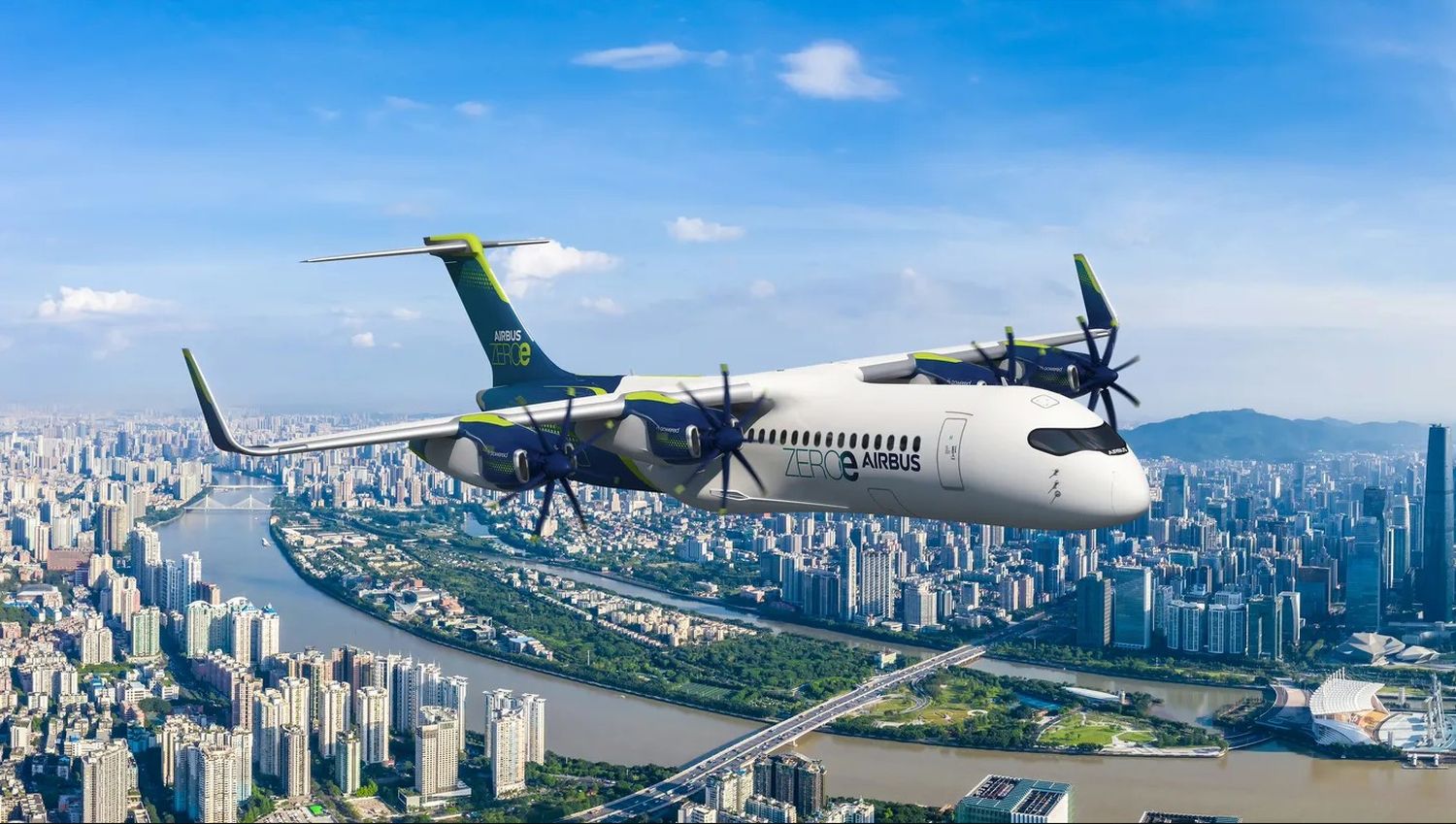Airbus presented an update on its roadmap towards the decarbonization of commercial aviation, focusing on the development of technologies for hydrogen-powered aircraft, during the Airbus Summit 2025.
As detailed by the company, work is underway on a new generation of single-aisle commercial aircraft that could enter service in the second half of the 2030s. At the same time, the schedule for the ZEROe project was reviewed, aimed at maturing the technologies necessary for hydrogen-powered flight.
Among the technologies showcased during the event, Airbus presented a concept for an aircraft powered by four 2-megawatt electric engines, fueled by fuel cell systems that convert hydrogen and oxygen into electric power. This design also includes two liquid hydrogen tanks to supply the propulsion systems.
“Hydrogen is at the center of our commitment to decarbonizing aviation,” said Bruno Fichefeux, Airbus’ Director of Future Programs. “Although we have adjusted our roadmap, our commitment to hydrogen-powered flight remains strong. Just as in the automotive industry, fully electric aircraft powered by fuel cells could, in the long run, revolutionize air transport,” he added.
The concept presented is the result of several years of research in hydrogen propulsion. Airbus stated that it will continue with additional testing in the coming years to advance the maturation of hydrogen storage systems, distribution, and propulsion.
“In the last five years, we explored multiple hydrogen propulsion concepts before selecting this fully electric option,” explained Glenn Llewellyn, head of the ZEROe project. “We believe it could offer the power density needed for a commercial aircraft and that it can evolve as the technology advances. In the coming years, we will focus on refining the key systems while driving the development of the regulatory framework that will enable the operation of these aircraft,” he continued.
According to Airbus, in 2023, a 1.2-megawatt hydrogen propulsion system was successfully demonstrated, and in 2024, integration tests were completed for components such as fuel cells, electric motors, gears, inverters, and heat exchangers.
To address the challenges associated with handling liquid hydrogen in flight, the company developed the Liquid Hydrogen BreadBoard (LH2BB) system in collaboration with Air Liquide Advanced Technologies in Grenoble, France. Ground-based integrated tests are planned for 2027 at the Electric Aircraft System Test House in Munich.
Airbus also indicated that it will continue working to foster the development of a hydrogen-based aviation economy and a regulatory framework that will enable the large-scale operation of such aircraft.


Comentarios
Para comentar, debés estar registrado
Por favor, iniciá sesión